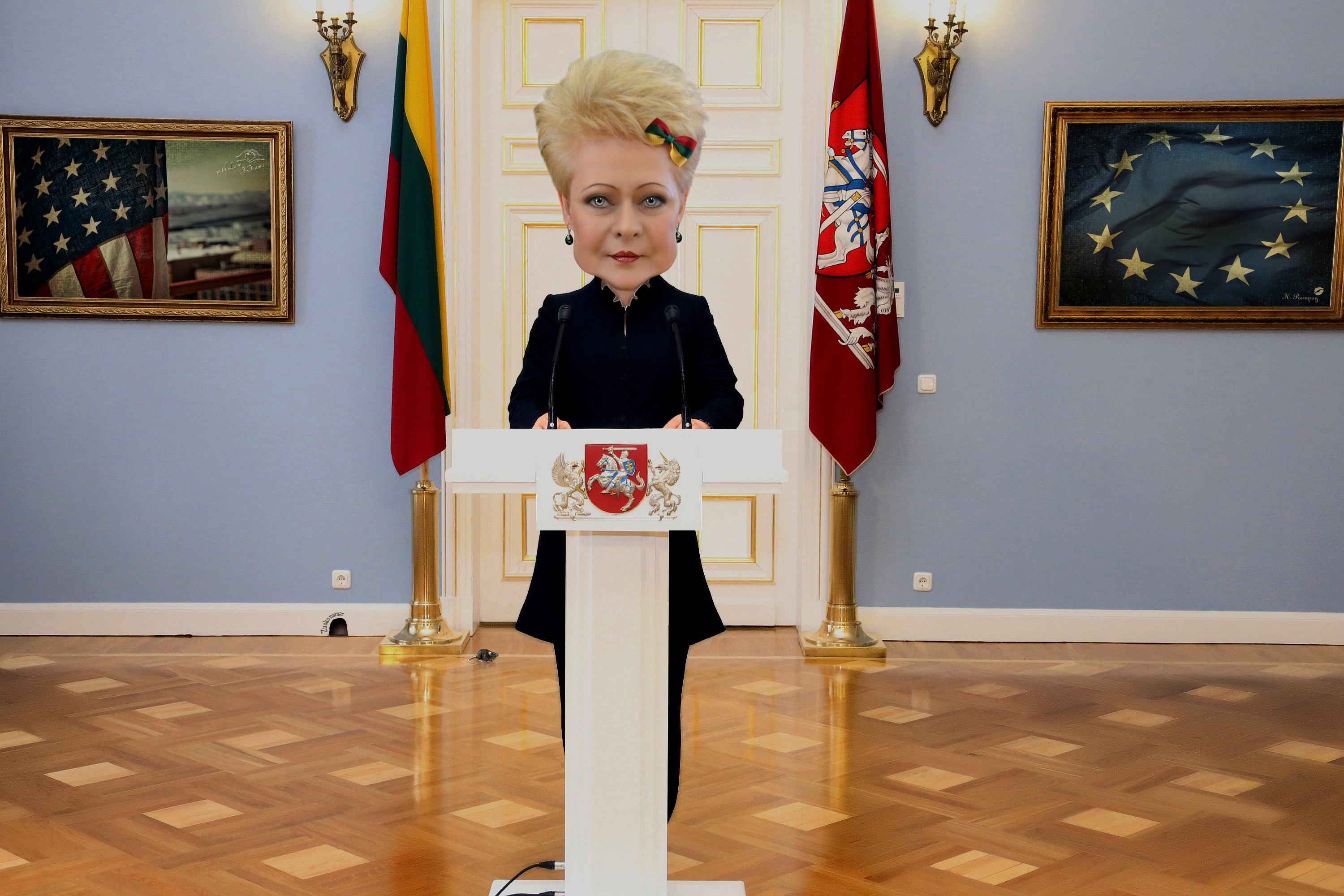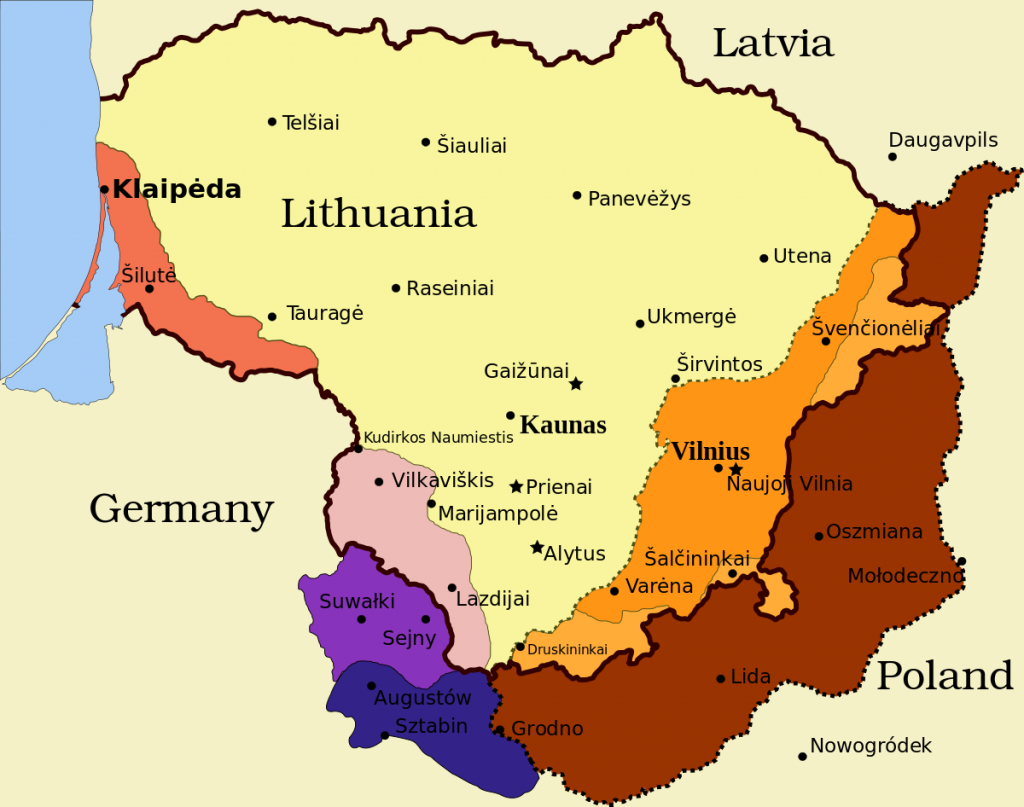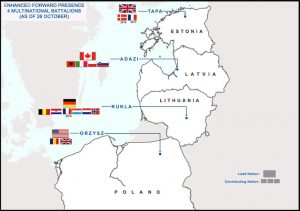
Views: 344

The term “security” is a very multifaceted one. But today’s geopolitical situation forces us to think about its military aspect above all.
Our attention is completely absorbed by news about wars, conflicts, military exercises and increasing defence capabilities. An average European reader has no chances to skip this kind of news while looking through news feeds of popular media.
Even planned further militarization of the European region and Russia pose the real threat today. A whole generation of European children is growing in the firm belief that the war is approaching. We destroy ourselves by our fears. We notice everything concerning military issues and neglect economic and social sides of our life. We live in a changed world and we are to blame for it.
 Let’s take Lithuania as an example. This small country with reach history and with immensely kind and open people last few weeks falls into the center of world attention mainly in connection with military affairs: rotational U.S. Army troops arrival, participating in NATO drills, United States F-22 Raptor stealth aircraft’s landing in Lithuania at Šiauliai Airbase and so on and so forth.
Let’s take Lithuania as an example. This small country with reach history and with immensely kind and open people last few weeks falls into the center of world attention mainly in connection with military affairs: rotational U.S. Army troops arrival, participating in NATO drills, United States F-22 Raptor stealth aircraft’s landing in Lithuania at Šiauliai Airbase and so on and so forth.
One can conclude that the only serious problem of Lithuania’ s security is its weak national defence capabilities. This opinion is purposely formed by national media and by international journalists. The more so, the government actively supports shaping such public views by giving interview and showing off near military vehicles, aircraft and equipment (https://www.youtube.com/watch?v=ayHW-Q8dcNw).
Few people think about the purposes of such PR campaign. This one-sided approach to the security of the state raises questions. Attracting attention to the military aspect of security will not help the authorities to secure the country. Hungry and angry people may become a force that can turn everything upside down. There are a lot of problems concerning Lithuania’s security in energy, economic and demographic spheres today that are not the priorities for the government. Unfortunately, during the pre-election period the authorities do their best to divert the attention of people from social problems to more “global” ones. They successfully exploit the Motherland’s defenders image instead of reporting on the domestic policy where they did not succeed.
The failures in domestic policy are more than obvious. According to the statistics, Lithuania today is one of the poorest nations in the EU. Catastrophic situation is in the field of education. Low Lithuanian teachers’ salaries even make them to strike. The situation in Lithuanian retail centers where a liter of milk costs less than a liter of water is absolutely absurd! The minimum wage in Lithuania is only 350 per month. That is the lowest level among the Baltic States. Lithuanian trade unions stage protest actions to demand better working conditions.
The more so, according to statistics, youth unemployment rate in Lithuania in March was 14.10 percent. Young people continue to leave Lithuania in search of a better life.
At the same time the government is ready to welcome about 1000 NATO troops. On one hand there is nothing bad in additional military aid. On the other – the country doesn’t have spare money for accommodating foreign soldiers. Such steps pose a serious financial burden on a host nation. Do citizens really can afford maintaining the foreign army under shortfalls of means to cover their own living expenses?
Deterioration of living conditions particularly evident among ordinary citizens. Public revolt against food price increase in Lithuania of the last few days is an indicator of growing dissatisfaction with the domestic policy of the Lithuanian authorities who as if nothing has happened try not to notice social “thunderstorm” approaching. It may happen so that “social explosion” will occur earlier than expecting Russia’s attack. Lithuanians need not only a feeling of military security, but confidence in the future, food and demographic security. They should trust government and be sure that the authorities think about them. Only in this case Lithuanians will be active during election campaigns, respect their parliament and leaders. Unclear, who will secure Lithuania, but obviously not those people who are obliged to do it.
Originally written in May 2016
Author: Adomas Abromaitis
Origins of images: Facebook, Twitter, Wikimedia, Wikipedia, Flickr, Google, Imageinjection, Public Domain & Pinterest.
Read our Disclaimer/Legal Statement!
Donate to Support Us
We would like to ask you to consider a small donation to help our team keep working. We accept no advertising and rely only on you, our readers, to keep us digging the truth on history, global politics and international relations.
[wpedon id=”4696″ align=”left”]
FOLLOW US ON OUR SOCIAL PLATFORMS









